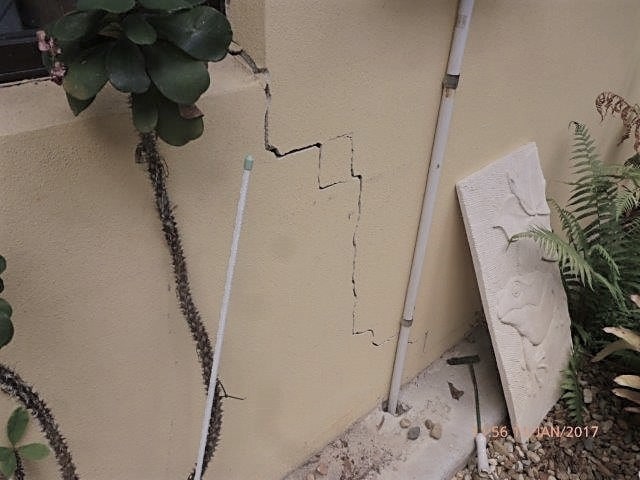What is the best foundation repair method?How would you describe the best foundation repair method? Is it concrete or cement? Is it new, old, or something else entirely? Regardless of what common methods should be used, concrete foundation repairs should address water leaks, non-structural cracks, wet concrete, poor drainage, and other issues that a foundation repair professional can find. Utilizing strong foundation repair techniques is important because it helps prevent damage from occurring within walls and floors. The best way to ensure a solid structure is through concrete foundations. Concrete is a great building material because it has high strength and durability. There are several different types of concrete, such as regular, precast, stamped concrete, shotcrete, etc., each having unique characteristics. Concrete is the most common type of foundation. In this article, I'll explain why concrete is the best foundation. House Foundation Repair MethodsThere are different methods of foundation repair that can be done by a foundation repair expert. Some of these include: • Brick piers • Poured footings • Precast concrete slabs • Stamped concrete • Shotcrete The first step in any foundation project is determining what kind of foundation will be needed for the property. This includes determining if the house needs a basement, slab-on-grade, crawlspace, or some other type of foundation. The next step is to decide on the size of the foundation. This includes deciding on how deep the footing should go, whether there should be an additional layer of insulation under the floor joists, and how much room there should be between the foundation and the exterior wall. Once all of these decisions have been made, then the actual construction process begins. Concrete Slabs, Steel Piers, and Soil to Resolve Foundation CracksConcrete is a mixture of water, sand, gravel, cement, and aggregate (such as crushed stone). It's poured into forms where it hardens over time. When pouring concrete, it's important to make sure that the surface area is level before adding more concrete. If the surface isn't flat, the concrete won't set properly. When the concrete is ready, it must be allowed to cure for at least 24 hours before being walked upon. Curing allows the concrete to dry out so that it doesn't crack when people walk on it. After curing, the concrete foundation should be inspected for cracks. These cracks could indicate problems with the soil beneath the foundation. If the foundation is cracked, then the soil underneath should be tested. If the soil is too wet, then the foundation may need to be raised up higher than normal. This type of process is commonly done to resolve foundation issues on any foundation type. Foundation repair contractors can quickly notice the common signs and provide foundation repair solutions. Concrete Leveling Service to Repair a Bad FoundationA concrete leveling service can help fix bad concrete foundations. A concrete lifting service uses special equipment to remove excess moisture from the ground below the foundation. This allows the concrete to be set properly. After the concrete is cured, the foundation is inspected to see if any further repairs are necessary. Removing excess water from the soil beneath a home will lower its overall cost by lowering the amount of money needed to repair future damage. It's important to note that most homeowners insurance policies don't cover this type of work. If you do decide to hire someone to perform the work, it may not be necessary to remove all the existing soil. In fact, some contractors might recommend only digging out the area around the foundation — which typically costs less than removing everything below the surface. That way, you'll save on concrete or other repairs but won't lose any usable space underneath the house. Signs of Foundation ProblemsThere are many warning signs that your foundation has issues. Some of them include: - Cracking walls or floors - Sagging ceilings - Warped doors or windows - Water leaking through the ceiling or walls If you notice any of these things, it's probably time to call a professional foundation repair company. Experts will update you about the foundation repair process affecting the entire house and the long-term solution that comes along with it. A regular foundation inspection of residential and commercial properties can unearth visible signs and guide you to make an informed decision about what you can do. Experts conduct common foundation repair methods to address a wide range of foundation issues like unstable soil, soil compression, water infiltration, sunken spaces, and plumbing leak. If extensive repairs are needed, they use heavy equipment that assists the speed of repair. These are not just short-term fixes, but companies do ensure that there are long-term solutions to foundation problems and that the risk of foundation damage is eliminated as well. Know the Type of Repair Needed for your Home or BusinessBefore calling in a contractor, it's important to know what kind of repair needs to be done to resolve foundation damage. There are three main types of foundation repair: Foundation Raising This involves raising the foundation up off the ground. Typically, this is done because the foundation is sinking or settling due to poor soil conditions. Foundation Stabilization This involves stabilizing the foundation so that it stays stable. The goal here is to prevent the foundation from moving or shifting. Foundation Replacement This involves replacing the entire foundation. This is usually done when there is severe damage to the structure. Types of FoundationsThere are two basic types of foundations: slab and pier. Both have their pros and cons. Here's how they differ: Slab Foundation A slab foundation is built directly into the ground. They're often used for homes that sit on large lots of land. Slabs are very sturdy, but they require a lot of maintenance. Pier Foundation A pier foundation sits on top of a retaining wall. These are great for smaller houses or businesses that don't want to deal with the hassle of maintaining a slab foundation. Pier foundations are also more expensive than slab foundations. Warranties for Foundation Stabilization and Concrete Slab Foundation RepairMost companies offer warranties for both stabilization and slab foundation repair services. Warranties vary depending on the company and the type of work being performed. A transferable lifetime warranty can be given but there are other flexible warranty options that can be presented. The most common types of warranties offered by contractors include: • A “no cost guarantee” that guarantees the contractor will do free work if the project fails due to poor quality materials, improper installation techniques, lack of experience, etc. • A “10-year structural warranty” covers the first 10 years after project completion. During this period, the contractor must fix any problems caused by poor construction practices. After the 10th year, the homeowner can choose whether to continue paying for the service or terminate the contract. • A "5-year material warranty" covers the first five years after job completion. During this period, if the contractor uses only high-quality materials, the contractor has no obligation to fix any problems. However, if the contractor does not use high-quality materials, then he/she may be required to fix any problems within the next five years. If you hire a contractor, it’s important to find out what guarantees they provide. Ask if they will guarantee their work against future water damage or mold growth. It’s best to ask this question before repairs begin so you know exactly what to expect from them. Is your Insurance Applicable for a House Foundation Repair?It depends on which state you live in. In some states, homeowners insurance policies cover foundation repair. If you live in an area where your insurance doesn’t cover foundation repair, you should contact your agent and see if you qualify for a separate policy that covers the average foundation repair cost. It's important to find a contractor that can help help you come up with cost effective solutions if you are dealing with structural damage. Concrete structures are complicated to deal with and an experienced professional makes the most out of the method of foundation repair they offer to customers. Find the Best Foundation Repair Companies in Syracuse NYFinding a reputable foundation repair company isn’t always easy. You must ensure that the company you hire has been properly trained and certified. The company should also be able to provide references from past customers.
You can get started by asking friends and family members for recommendations. Also, check online reviews and rating sites like Yelp and Angie’s List. Finally, look at local newspapers and business directories to find out who among the foundation companies in your area offers the best deals. A home's foundation is its weakest link. When a house settles unevenly over time, cracks appear on walls and floors. This can lead to serious issues such as water leakage, mold, and even collapse. Fortunately, there are ways to prevent these problems from occurring.
1 Comment
1/26/2023 08:18:30 am
Repairing foundations is an important aspect of maintaining your home which should be treated with care. Different techniques are used to tackle foundation problems, including the helical piers as well as steel push piers. The most effective foundation repair technique will depend on the extent of the problem and the kind of foundation that is being repaired, but the most popular and cost-effective option is to use helical Piers. Helical piers penetrate deep into the soil and offer greater strength to strengthen the foundation and avoid any further settlement.
Reply
Leave a Reply. |
|

